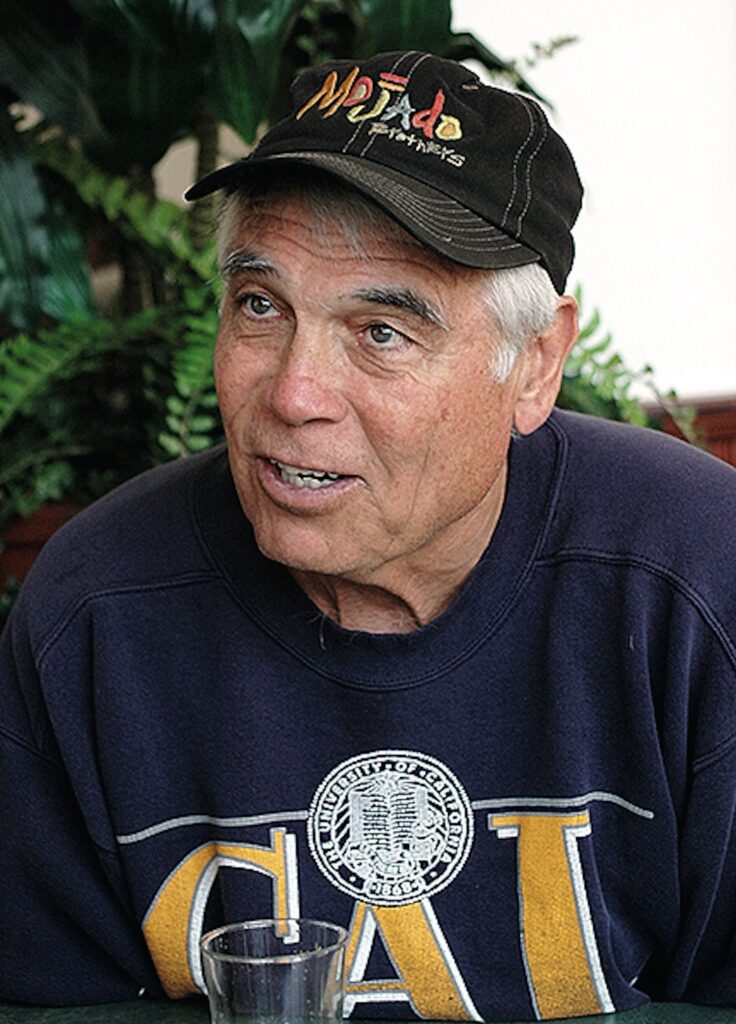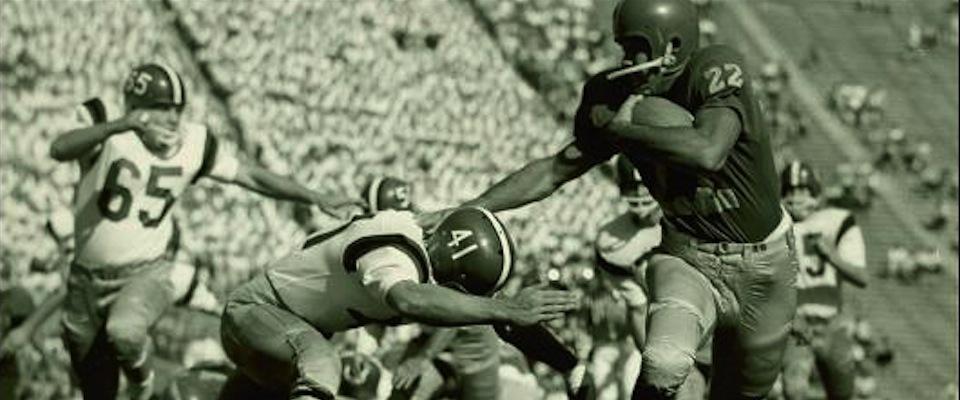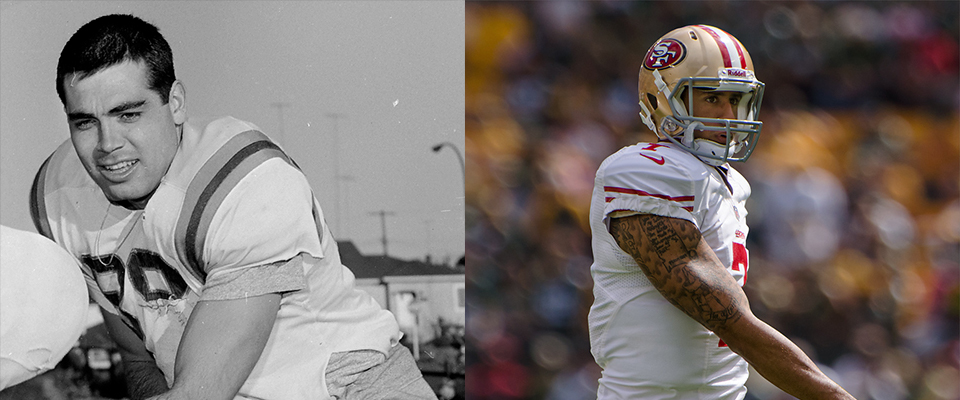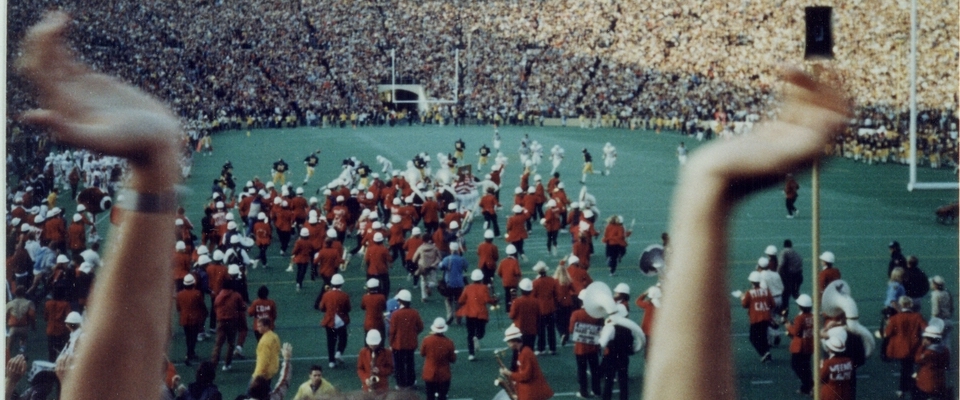Joe Kapp ’59 was the greatest bad quarterback there ever was—a larger-than-life character who left his mark as a player, coach, and activist.
Famous for “wounded duck” passes that somehow hit their target, he once threw for a record seven touchdowns against league champions the Baltimore Colts. That was the season Kapp led the Minnesota Vikings to the Super Bowl, after which Sports Illustrated put him on the cover as “The Toughest Chicano.” (Kapp, whose mother’s maiden name was Garcia, was proud of his Mexican heritage and publicly supported causes such as the farmworkers union.) Sportswriters also called Kapp “glacier fast” and a “big, belligerent example of everything a top pro quarterback isn’t supposed to be.”

“My whole image was not clásico,” Kapp once admitted to California. “But I knew what I was doing.”
He was the last quarterback to take Cal to the Rose Bowl, in 1959. The Bears lost that game, but it was a miraculous season. A squad that had gone 1–9 the year before had become conference champions, driven in no small part by Kapp’s ferocious determination.
After Cal, he played for several years in the Canadian Football League, ultimately winning the Grey Cup with the BC Lions, before making his way to the NFL and Minnesota. He led the Vikings with the motto “40 for 60”; i.e., 40 players giving their all, for 60 minutes of every game. “He was all about the team, not about himself,” says former Vikings teammate Ed White ’70, who remembers Kapp for his kindness off the field and toughness on it. “He wasn’t afraid to put his head down and run into you—or over you.”
Kapp wasn’t afraid to take on the NFL, either. In 1972, he brought suit against the league on antitrust grounds, and won. The jury declined to award him damages, but the case was a milestone for players’ rights.
His own playing days over, he turned to acting, with roles in such films as The Longest Yard and Semi-Tough, before eventually returning to his alma mater as head coach. Once again, he would leave his mark, this time in the form of The Play, the incredible five-lateral sequence that won the 1982 Big Game.
“That was no accident, that play,” says John Beasley ’67, a color commentator on the game who was also a teammate of Kapp’s at the Vikings. “Joe had this game he used to play in practice, everyone lateraling the ball to each other in an elaborate game of keep-away. He called it grabasse—or grabass.”
As Kapp told it, after officials signaled the touchdown and pandemonium ensued, he turned to his assistant and said, “Let’s get the hell out of here, before they change their minds.”
Joe Kapp died on May 8, at age 85, after years battling dementia. He donated his brain to UCSF for study. He is survived by wife, Jennifer, daughters Emiliana and Gabriela, sons J.J. and Will ’11, and six grandchildren.






















